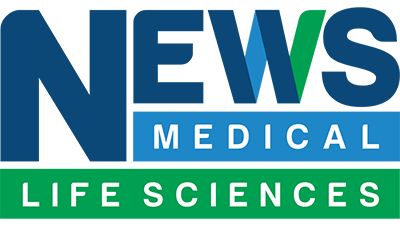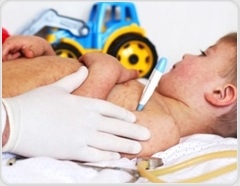
|
|
|
| |

|
|
| |
The latest pediatrics news from News Medical |
|
|
|
 | | |  US measles and pertussis outbreaks expose policy failures, not just vaccine hesitancy US measles and pertussis outbreaks expose policy failures, not just vaccine hesitancy A recent commentary argues that US measles and pertussis outbreaks are not simply the result of vaccine hesitancy but reflect weakened immunization policies, permissive exemptions, and underfunded public health systems. The authors contend that policy environments determine whether pockets of low coverage escalate into large-scale, preventable outbreaks. | | | | |  Living near nuclear power plants is associated with higher cancer mortality, national US study reports Living near nuclear power plants is associated with higher cancer mortality, national US study reports A nationwide ecological study of US counties from 2000 to 2018 found that greater proximity to operational nuclear power plants was associated with higher cancer mortality rates, particularly among adults aged 65–74 years. The analysis used inverse-distance weighting within 200 km and adjusted for demographic, socioeconomic, environmental, and healthcare factors, but did not measure individual radiation exposure. | |
|
|
| |  | | |  New research led by LSE reveals that high‑income countries once suffered severe child stunting comparable to rates seen in many low‑ and middle‑income countries today, offering powerful evidence that child stunting can be eliminated globally. New research led by LSE reveals that high‑income countries once suffered severe child stunting comparable to rates seen in many low‑ and middle‑income countries today, offering powerful evidence that child stunting can be eliminated globally. | | | | |  Young infants hospitalized with respiratory syncytial virus (RSV) often become much sicker compared to those infected with SARS-CoV-2, the virus that causes COVID-19. Young infants hospitalized with respiratory syncytial virus (RSV) often become much sicker compared to those infected with SARS-CoV-2, the virus that causes COVID-19. | | | | |  Breasts are necessary for breastfeeding, but their size is not decisive in terms of milk production. A large part of the breast consists of adipose tissue, and earlier theories have suggested that they function, for example, as a body fat reserve. Another theory proposes that breasts evolved through sexual selection as a signal of individual fitness, similar to facial symmetry. Breasts are necessary for breastfeeding, but their size is not decisive in terms of milk production. A large part of the breast consists of adipose tissue, and earlier theories have suggested that they function, for example, as a body fat reserve. Another theory proposes that breasts evolved through sexual selection as a signal of individual fitness, similar to facial symmetry. | | | | | At around 2 a.m., 7-year-old twin brothers arrived at Mission Hospital in Asheville. Both had a fever, a cough, a rash, pink eye, and cold symptoms. | | | | | Increasing numbers of parents are refusing vitamin K shots for their newborns, putting infants at greater risk of avoidable brain injuries, according to a preliminary systematic review released February 26, 2026, that will be presented at the American Academy of Neurology's 78th Annual Meeting taking place April 18-22, 2026, in Chicago and online. | | | | | A new study published in the journal Addiction shows that cannabis use among Swedish adolescents appears to follow the same population-level pattern previously observed for alcohol. | | | | | A team of researchers at the Icahn School of Medicine at Mount Sinai, Weill Cornell Medicine, and other institutions have uncovered a key biological explanation for why eczema so often starts in childhood. | | | | | High school students often have trouble getting to bed at a reasonable time, which makes it difficult for them to start school early in the morning. This is because teenagers are biologically wired to fall asleep later than adults, with their biological clock shifting progressively later throughout adolescence. The result is that most teenagers don't get enough sleep on school days, and their sleep deficits increase as the week progresses. | | | | | Physical fitness and psychological resilience develop side by side during adolescence, a life stage that lays the foundation for adult health. Cardiorespiratory endurance, muscular strength, and agility are well-known predictors of cardiometabolic health, while self-efficacy, defined as the belief in one's ability to overcome challenges, shapes motivation, persistence, and coping strategies. | | | | | A tooth cavity and bleeding gums is a common scenario among Danish children – and one that researchers now connect to health problems long after the last baby tooth has left the mouth. | | | | | Up to 75% of adolescents experience sleep-related problems, including insufficient duration and poor sleep quality. | | | | | Researchers at The Hospital for Sick Children (SickKids), working with international collaborators and youth and family caregivers, have developed a child- and youth-centred global standard for reporting paediatric randomized controlled trials (RCTs) protocols and final reports. | |
|
|
|
|
|
|
|